Choosing the right vendors for a homeowners association (HOA) can make a big difference in maintaining a well-run community. In Northern California, where diverse HOA-managed properties like condos, high-rises, and master planned communities are common, selecting capable vendors is particularly important. Vendors provide essential services that keep a community functional and appealing, from landscaping and maintenance to security and amenities management.
Evaluating vendor proposals is a key step in this process. It ensures that HOA boards don’t just pick the first vendor that shows up but choose partners who will meet the community’s specific needs effectively. By understanding what to look for in a proposal, HOAs can avoid pitfalls and ensure smooth operations that benefit all residents. Let’s explore the steps to take in evaluating vendor proposals, starting with understanding your community’s unique needs.
Understanding Your Community’s Needs
Each HOA community has its priorities, and recognizing these is the first step in evaluating vendor proposals. Whether it’s a sprawling condo complex, a sleek high-rise, or a picturesque master planned community, every location has distinct requirements. Knowing these needs ensures that the chosen vendor aligns perfectly with what the HOA expects.
To effectively outline these requirements, consider:
– Property Type: Is your community predominantly condos, high-rises, or spread across larger areas like commercial properties?
– Common Areas: What kind of maintenance is needed for shared spaces, such as pools, gardens, or gym facilities?
– Resident Expectations: What amenities and services do residents value most, like regular landscaping or around-the-clock security?
– Budget Limitations: What financial constraints must be considered to ensure quality services without overspending?
Once you’ve listed these needs, prioritize them. Determine which services are absolute must-haves and which are negotiable. This clarity will guide you in selecting proposals that not only fit the budget but match the community’s vision as well. A well-maintained high-rise, for example, might prioritize elevator services and security, while a master planned community could focus more on landscaping and clubhouse management.
Understanding these key aspects ensures that the vendor proposals you evaluate align well with your community’s vision, leading to a partnership that serves both current and future needs. With this understanding, you can move forward with assessing specific vendor proposals, knowing exactly what you’re looking for.
Key Criteria for Evaluating Vendor Proposals
When sifting through vendor proposals, it’s helpful to focus on a few key criteria to make sure you get the best fit for your HOA. First, look at the vendor’s experience. Do they have a solid track record working with communities similar to yours? For instance, a company accustomed to the demands of high-rise properties might be more attuned to the needs of such structures than one focusing on small residential areas.
Next, consider the cost. It’s not just about finding the lowest bid. Quality and reliability are crucial, so weigh the prices against the services offered. You’ll want to ensure that the vendor can deliver what’s promised without hidden fees or unexpected charges down the line.
Here are some essential factors to include when comparing proposals:
– Services Offered: Are the services comprehensive and tailored to your community’s needs?
– References and Testimonials: Can the vendor provide references from other satisfied clients?
– Proposal Clarity: Is the proposal clear and detailed enough to understand the service scope and terms?
– Licenses and Insurance: Does the vendor have the necessary licenses and insurance to operate legally in your area?
Finding answers to these questions will help you make an informed decision. To compare proposals effectively, you might create a comparison chart to visualize the strengths and weaknesses of each option side-by-side.
Questions to Ask Potential Vendors
Ensuring that a vendor fits your community means asking the right questions during evaluations. Besides pricing and services, delve into how the vendor approaches customer care and problem-solving.
Consider starting the conversations with these questions:
1. How do you handle emergencies or high-priority requests?
2. What is your protocol for communication and updates?
3. Can you outline your process for dealing with complaints or issues?
4. How do you ensure compliance with local regulations and standards?
Understanding these aspects will give you confidence in the vendor’s ability to manage day-to-day operations and tackle unexpected challenges. Moreover, clear communication about responsibilities and expectations upfront ensures that both the HOA and the vendor are aligned.
Settling On A Decision
Once all the proposals have been fully evaluated, it’s time to make a choice. This involves consulting with your HOA board and gathering feedback from residents to ensure the selected vendor meets everyone’s expectations. An inclusive decision-making process fosters community trust and satisfaction.
To finalize the vendor selection, draft a contract that clearly states the services, pricing, timelines, and any other expectations. This step protects the interests of both parties and lays the groundwork for a successful partnership. Once you’re set, communicate the final decision to your residents, providing an overview of what to expect from the new vendor.
Finalizing Your Vendor Choice and Building a Successful Partnership
Opting for well-thought-out vendor selections ensures the continued operation and aesthetic appeal of your community. With careful planning and attention to detail, you can establish relationships that bring lasting benefits to your HOA.
Ensure your HOA thrives with the right vendor partnership by choosing AMC for your needs. Our expertise in association management services will guide you in managing an HOA effectively, leading to enhanced community satisfaction and seamless day-to-day operations. Trust AMC to provide the tailored solutions your community demands, fostering a harmonious and well-maintained environment for all residents.





